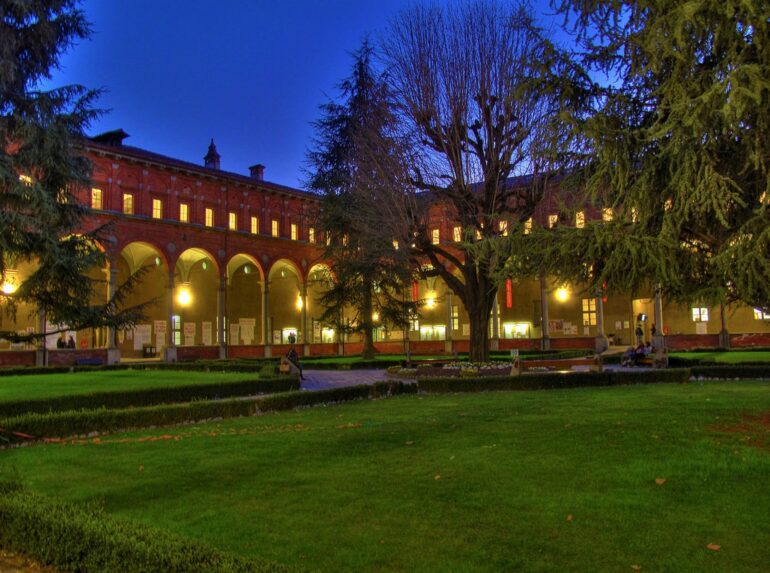TL;DR:
- The Università Cattolica del Sacro Cuore will host “The Future of Catholic Universities in the AI Age” event on July 13 and 14.
- The event aims to explore how new technologies can be utilized inclusively and in a human-centered manner.
- Cardinal José Tolentino de Mendonça will deliver the keynote lecture on the first day.
- The event is organized by the Strategic Alliance of Catholic Research Universities (SACRU), consisting of eight Catholic universities from around the world.
- Key topics include innovation, theology, computer science, and interdisciplinary research.
- The event features plenary sessions with expert speakers and parallel sessions on education, research, and the social function of universities.
- The rectors of all eight universities will participate, and a position paper will be published on the impact of AI on universities.
- The event will be conducted in a hybrid format, allowing both in-person and remote participation.
Main AI News:
The Università Cattolica del Sacro Cuore is set to host an exclusive event that delves into the future of Catholic universities in the AI age. Scheduled to take place on Thursday 13 and Friday 14 July, this highly anticipated gathering aims to examine the challenges and opportunities that arise from new technologies while focusing on their inclusive and human-centered application.
The keynote lecture on the first day will be delivered by Cardinal José Tolentino de Mendonça, Prefect of the Holy See’s Dicastery for Culture and Education. His profound insights are sure to set the stage for the engaging discussions and thought-provoking sessions that will follow.
The Scientific Colloquium is orchestrated by the Strategic Alliance of Catholic Research Universities (SACRU), a distinguished network consisting of eight Catholic universities spanning five continents. Università Cattolica del Sacro Cuore serves as the coordinating institution for this collaboration, which includes renowned establishments such as the Australian Catholic University, Boston College, Universitat Ramon Llull, Pontificia Universidad Católica de Chile, Pontifícia Universidade Católica do Rio de Janeiro, Sophia University, and Universidade Catolica Portuguesa.
Together, these esteemed universities are dedicated to fostering global education for the Common Good, while driving exceptional interdisciplinary research. By leveraging their collective expertise and resources, they aim to navigate the ever-evolving landscape of academia and embrace the opportunities brought forth by the AI era.
The Colloquium will commence on Thursday 13 July with an opening address by Professor Franco Anelli, Rector of the Università Cattolica and Vice-President of SACRU. Cardinal Mendonça’s keynote lecture will follow, offering valuable perspectives and reflections. Professor Zlatko Skrbis, President of SACRU, will then provide an insightful introduction that sets the tone for the event.
Throughout the plenary session, attendees will have the privilege of hearing from esteemed speakers who are at the forefront of their respective fields. Notable figures such as Marcelo Gattass, Vice-President for Innovation at the Pontifícia Universidade Católica do Rio de Janeiro; Andrea Vicini, Director of the Theology Department at Boston College; Alvaro Soto, Professor of Computer Science at the Pontificia Universidad Católica de Chile; William Hasselberger, Professor at the Institute of Political Studies at the Universidade Católica Portuguesa; and Xavier Vilasis, Professor of Engineering at the Universitat Ramon Llull, will grace the stage.
The plenary sessions will be expertly chaired by Antonella Sciarrone Alibrandi, Undersecretary of the Holy See’s Dicastery for Culture and Education, with rapporteur Marco Carlo Passarotti, a distinguished Professor of Computational Linguistics at Università Cattolica.
On Friday 14 July, the discussions will seamlessly continue within the plenary session, featuring insightful contributions from Andrea Gaggioli, Professor of Psychology at Università Cattolica; Samuel Baron, Professor of Philosophy at the Australian Catholic University; and Tad Gonsalves, Professor of Computer Science at Sophia University in Tokyo.
The Scientific Colloquium will be structured around plenary sessions that encompass keynote speeches by eight exceptional individuals, one representative from each partner university. Additionally, two parallel sessions will delve into vital aspects of education, research, and the broader social function of universities. The first session, focusing on education and research, will be chaired by Giovanni Marseguerra, Professor of Political Economy and Pro-Rector for the Coordination of Educational Offerings at Università Cattolica. Mikki Schindler, a renowned Social Psychologist at the Universitat Ramon Llull, will serve as the session’s rapporteur.
In the second parallel session, Marília dos Santos Lopes, a distinguished lecturer in Human Sciences at the Universidade Católica Portuguesa, will assume the role of chair, while Federico Manzi, a respected Researcher in Developmental and Educational Psychology at Università Cattolica, will contribute as the session’s rapporteur.
The event will be graced by the presence of the rectors from all eight universities, symbolizing their collective commitment to the future of academia. Following the conclusion of the Scientific Colloquium, a preliminary document will be prepared, outlining a position paper that vividly describes SACRU’s vision of the impact of artificial intelligence and the pivotal role of universities, especially Catholic universities. These significant findings will be presented by the President and Secretary General of SACRU.
Conclusion:
“The Future of Catholic Universities in the AI Age” event presents an important opportunity for Catholic universities to explore the challenges and opportunities brought by new technologies. By embracing inclusivity and human-centered approaches, these institutions can position themselves at the forefront of innovation and interdisciplinary research. The event also signifies a growing market for AI applications and solutions within the education sector, presenting avenues for collaboration and advancements in academia.

